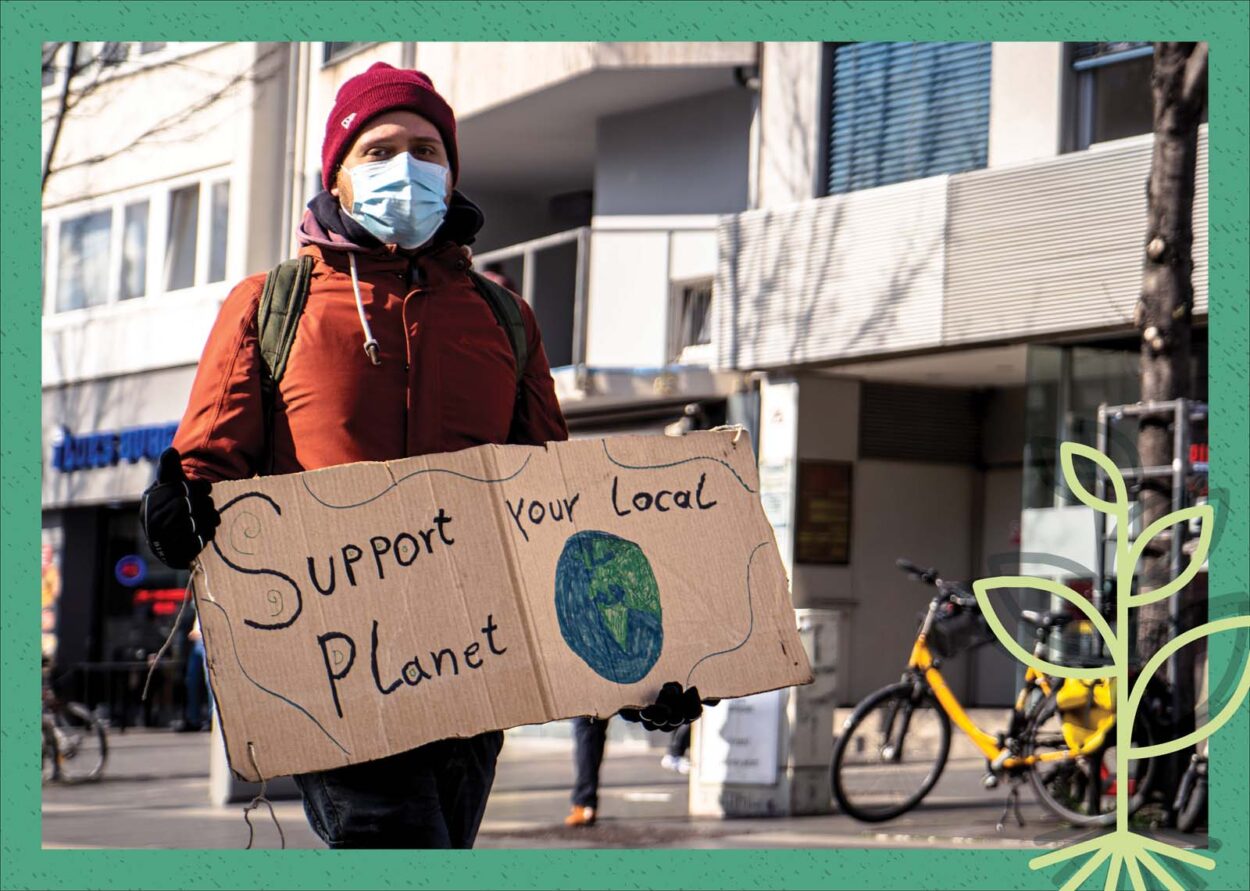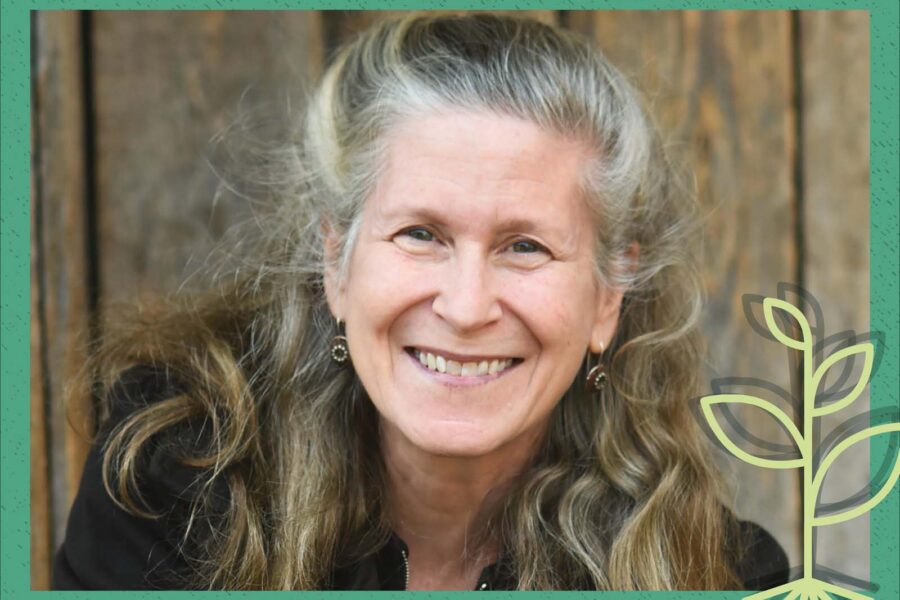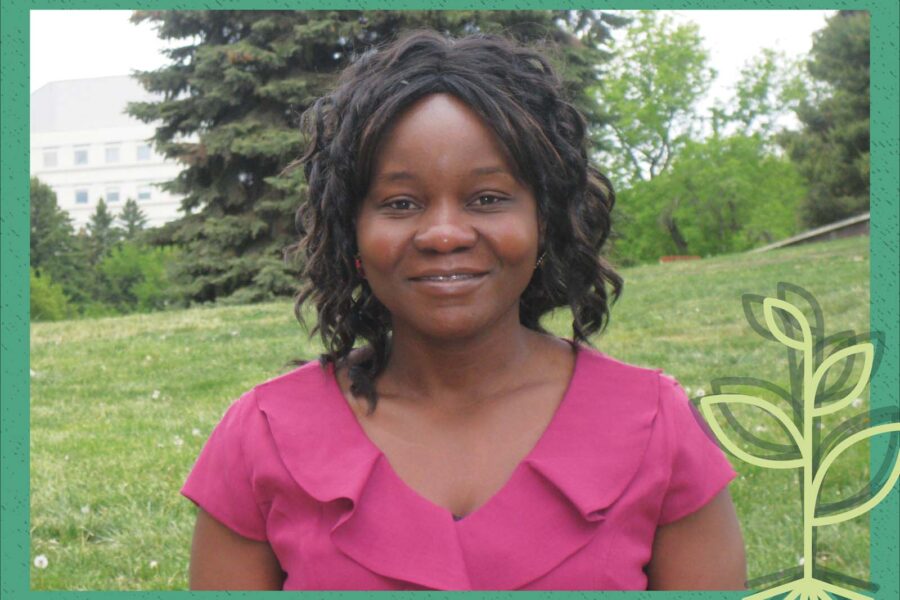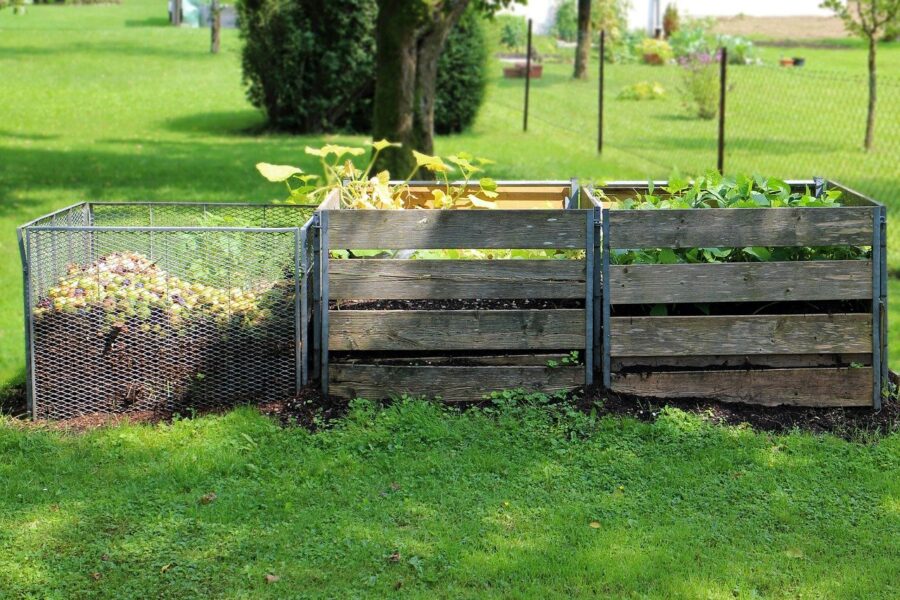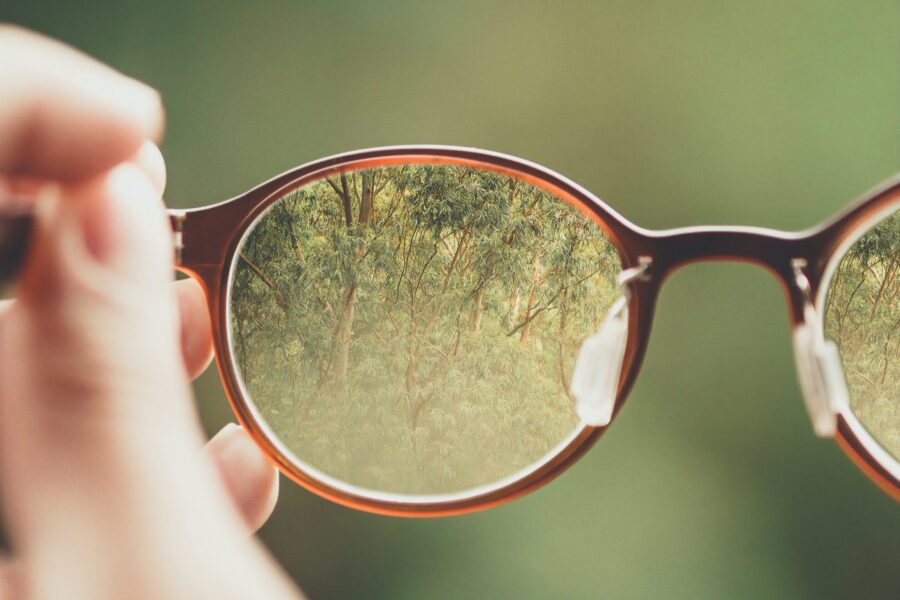Across the country, activists and educators use Earth Day to teach the public about the importance of environmental justice and action to slow and mitigate climate change. This year we take it as an opportunity to talk with two Antioch faculty, Libby McCann and Sue Byers, about how we can challenge the ways our country has used environmental education in the past and collectively push for more equitable solutions to the climate crisis.
Subscribe: Apple Podcasts | Spotify | Pandora | Simplecast
Episode Notes
If you would like to read the written pieces mentioned in this podcast, you can read Sue Byers’ blog post on Earth Day at the Seed Field, and you can find the essay Racism is Killing the Planet by Climate Justice Fellow Hop Hopkins at the Sierra Club’s blog.
You can click here to find out more about the Coalition of Communities of Color.
Learn more about the Environmental Studies & Sustainability Programs at Antioch University.
Recorded April 7, 2021 via Riverside.fm. Released April 14, 2021.
The Seed Field Podcast is produced by Antioch University, co-hosted by Jasper Nighthawk and Simon Javan Okelo, and edited by Lauren Instenes. Guidance for this episode came from Melissa Batalin, Karen Hamilton, and Melinda Garland.
Guest Bios
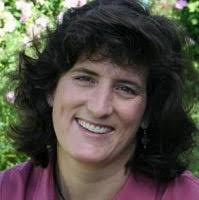
Libby is based in New England where she serves as the Director of the Environmental Education Concentration in the Master of Science in Environmental Studies, Environmental Education program. Libby also helps to run the Keene Community Garden project at AUNE and has directed Earth Partnership for Schools, a national program planting native gardens as outdoor classrooms.
She has lived and worked in California, Washington, New Zealand, New Jersey, and Wisconsin as an environmental and consumer organizer and environmental educator/interpreter. More about Dr. Libby McCann.
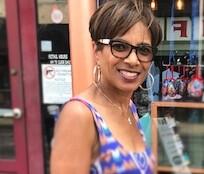
Sue is based in Seattle where she is the Director of the Urban Environmental Education Master’s in Education program at Antioch University Seattle. Sue began her career in education at Seattle Public Schools where she directed college access and readiness programs for middle and high school students. She served as Chief Academic Officer at the College Success Foundation where she launched programs in Washington State and the District of Columbia, serving over 6,000 low-income and underserved youth. More about Sue Byers.
S1E4 Transcript
[music]
[00:00:06] Jasper Nighthawk: Thank you for being here with us today. You’re listening to The Seed Field Podcast presented to you by Antioch University.
[music]
With every episode of the Seed Field, we celebrate and share stories of those who embody the spirit of our founder, Horace Mann, as they win victories for humanity. My name is Jasper Nighthawk and I’m supported here by my co-host, Simon Javan Okelo. Simon, can you tell us what we have to look forward to in today’s show?
[00:00:41] Simon Javan Okelo: Thank you, Jasper. I am happy to be here with you again. This week, I took on hosting duties for the show and I got to talk with two faculty who are leaders in environmental education, one in Seattle, where I am and the other one in New England. It was an enlightening conversation where we talked about the evolution of Earth Day into Earth Month, and the different ways we can engage in conversations around climate change, and the impact environmental education can have on the world.
My takeaway was the idea that environmental education and activism need to be looked at from a ratio lens to ensure people of color and communities where they leave, don’t suffer and carry the burden for others as it has been the case historically.
[00:01:43] Jasper: This sounds like such an important conversation. I’m so excited to hear about it. Let’s listen.
[music]
[00:01:57] Simon: Thank you for joining us for the fourth episode of The Seed Field Podcast. I am honored to introduce Dr. Elizabeth McCann. Libby has a PhD in adult education with an emphasis in environmental education. She has coordinated programs like Water Education for Teachers, and Adopt-A-Lake, and directed Earth Partnership for Schools, a national program planting native gardens as outdoor classrooms. Libby is currently Core Faculty in the Environmental Studies & Sustainability department at Antioch, New England, where she directs the Environmental Education Concentration. Libby, welcome to the Seed Field Podcast.
[00:02:46] Libby McCann: Thank you so much, Simon. It’s great to be here.
[00:02:50] Simon: Thank you very much for being here. It means a lot that you took the time to join us for today’s wonderful conversation. I am excited to formally introduce Sue Byers. Sue began her career in education at Seattle Public Schools, where she directed college access and readiness programs for middle and high school students. She served as Chief Academic Officer at the college success Foundation, where she launched programs in Washington State and the District of Columbia serving over 6000 low-income and underserved youth. She served as the Director of the Urban Environmental Education Program at Antioch University Seattle. Welcome to the seed field podcast, Sue.
[00:03:45] Sue Byers: Thank you so much, Simon. It’s my pleasure to be here. Thank you.
[00:03:49] Simon: Thank you so much, Sue. It’s great to have both of you here to talk about Earth Month. Last year marked the 50th anniversary of Earth Day. Over the past five decades, that single day has evolved into an Earth Month, a time when the world takes a moment to celebrate environmental protection and climate solution work and to encourage more people to take action and participate in initiatives that will improve sustainability and encourage environmental justice.
You are both leading programs that are educating environmental educators, helping shape their teaching careers to ensure they address environmental social justice issues and solutions. Sue, can you share with us a story of one of your students that exemplifies how the new generation of educators and leaders can make real change in this space?
[00:04:57] Sue: Now you’re going to get me started talking about my students. [laughter]
If you could see me my smile is wide. One of our students that comes to mind is an alumni of our program. She graduated in 2020. She came to the Urban Environmental Ed program at Antioch University, Seattle, with a dream of studying environmental education and leadership and to do that through a multicultural and social justice lens. She desired to create space and support for community building around land and food equity.
She wanted to celebrate her own as well as other communities of color culture. Honoring their customs knowledge, and contributions and she realized that dream. She served diverse communities, elders, women, and youth. She became a co-owner of a farm, and in participating with other BIPOC owned farms, she learned how to farm, shared vegetables and plants, as well as led workshops on nutrition, and indigenous and Western farming practices. She even gave me a plan to start my gardening experience.
She is just one of the many UEE alumni who are environmental leaders in their own rights, working in support of equity and access, as well as making impacts in support of community.
[00:06:33] Simon: Thank you so much, Sue. This is Simon speaking. At this time I just want to check in with Libby. I just thank you so much for taking the time to join us for today’s conversation. When I read your teaching statement, I learned that you see equity and justice as core components of an authentic learning environment. This actually reminded me of an essay by Hop Hopkins titled, Racism is killing the planet.
With education and with environmental justice, you can’t separate social justice from the work we need to do. I’m hoping you can share a story of one of your students, Libby, past, present, or someone that inspires you by ensuring equity and justice is in the education and climate activism work.
[00:07:28] Libby: Thank you, Simon. Thank you for reminding me of the Racism is Killing the Planet piece too. I first just want to circle back though before I respond, to say how my smile is wide, Sue, just hearing about one of your students and their commitment to community, particularly around land and food and equity, it’s just really inspiring. It’s inspiring to imagine that our impacts are happening across the country and the globe. That just makes my smile wide too.
Back to your question, Simon, we can’t address the climate justice issues and the environmental issues we have without dismantling racism of all sorts and dismantling white supremacy, quite frankly. Luckily, there are all examples of change happening and it’s super inspiring. Here are some examples of folks doing cool work at the intersection of equity, justice, education, and climate justice.
One is a colleague actually on the West coast, who is the outreach and inclusion coordinator for the Oregon Outdoor School Program.We are working on another related national initiative around culturally responsive pedagogy. Another is a student in Minnesota, former student actually, who is also working on this national initiative around cultural responsiveness and equitable evaluation and community engagement. They are the director of education at a state agency in Minnesota. What they’ve really been doing is building the capacity of the environmental education field, to be more culturally humble and inclusive, and just in our practices. To do that, they’ve written a book that’s a capacity building around intersectionality, equity inclusion, allyship to name only a few of the themes and doing workshops around those themes.
Then another student that I actually just was on a Zoom with today is very much committed to– They are in Costa Rica. They’re actually a current student and they’re very committed to authentically engaging youth and youth voice in turtle conservation. I could go on and on and I’m sure, Sue, you could too. I hope that wasn’t too much. I also wanted to honor what colleagues had said to about our students. They were like, “Our students are amazing!” I could say with great confidence that the students in the Seattle program are equally amazing.
[00:10:30] Simon: I do want to actually ask you to just share a little more about some of the exciting work you’re doing within your program in New England. Then I want Sue to come right after that to share with us some of the exciting things going on because it’s clear how proud you’re both are of your students. Those are the fruits of your labour. I just want you to talk about your programs.
[00:10:55] Libby: Sure. Thanks, Simon. I think the big piece is the applied nature of what we do. You really gain professional experience and not just professional experience but learning in community, collaborating with others. If we’re going to solve the climate crisis and injustices, we have to collaborate, we have to lead with love and humility. We do that alongside students. We link arms with students. They come with wisdom and life experience and we’re learning together in community.
How we do this and apply aspects we have a food justice project here led by students called community garden connections. It’s all-student staffed and we’ve had more than I think 40 students engaged in that program over the 10 years that it’s been around. We have the Culturally Responsive and Equitable Evaluation project. We have three students involved in that right now, we have the Mount Monadnock Project where students are doing education literally on the mountain with community members.
We have a climate resilience center that students participate with leaders across the globe, quite frankly, to unpack that justice and enhance resilience in communities. Those are just a few of the examples. I just can’t emphasize enough that the application piece students are making a difference as they are engaging in their graduate studies. I just think that is so powerful.
[00:12:47] Simon: I feel like you and Sue and the entire leadership at Antioch know how to identify the right students for these programs. I want to bring in Sue real quick. Sue, please share with us why this has been important to you and just paint a little picture about what’s going on in Seattle. Just add to us this piece, how you feel that the COVID 19 pandemic has impacted this programming that actually requires engagement with the community.
[00:13:21] Sue: Thank you. Our Urban Environmental Ed Program in Seattle is a program that looks at environment through that social justice lens and really highlights and values that of community voice. As you have shared, Simon, the impact that the pandemic has been one we have not been able to be in-person in classes. However, we’ve had a few in-person field studies that has been wonderful that got us charged up and they’ve been out in the community. I’m excited about that. We have taken our classroom outside in the community as is the case rather we were in this pandemic or otherwise because we value really learning and having real life experiences as a part of our curriculum.As a part of the experiences that our leaders within our program have an opportunity to participate in.
Some of that impact on community, I must applaud our practicum partners who did not give up just because we may not be able to work face-to-face as we had in the past consistently but they still offer those practical experiences for our students. They have included an organization that’s working with a small community in Algona, that’s been impacted by toxic runoff within their yards and really are impacted by growth in their communities.
They have worked to teach climate change and about the climate crisis in the elementary schools, in partnership with the school district there, as well as to amplify the voices of the community in the legislature to let the legislators know how the community feels about the Growth Management Act. Really, again, demonstrating the lived experience and the value of that voice. Those are just a few things that we’ve been doing. I could give you many, many more, but I know time won’t permit.
[00:15:55] Simon: I know. Sue, while you’re at it, would you just share with us three actions that you think our listeners should take this month?
[00:16:04] Sue: Absolutely. I’m going to borrow from the Communities of Color Coalition, which is an alliance of the culturally specific community-based organizations with representations from communities of color, and they are locally, regionally, and these are the three actions that they’ve encouraged. I thought they were really great. One is to prevent harm, protect underserved communities locally and globally from environmental harms, negative financial impacts, disruption of social cohesion, and other impacts as a result of environmental and climate policy.
Two, provide benefit. Re-invest revenues to reduce disparities and create opportunities directly in underserved communities. Three, ensure inclusive design and implementation. Support accountable and equitable policy development, implementation, and monitoring through involvement, which is key, and leadership of the most impacted communities.
[00:17:16] Simon: Thank you so much, Sue. At this moment, I want to see if Libby also has tips as well to share with our wonderful listeners to take action this month as part of Earth Month.
[00:17:29]Libby: Thank you, Simon. I second and applaud everything that Sue just mentioned in terms of preventing harm, providing benefit, ensuring inclusive design. I will say I’ve been reading some really inspiring, interesting books lately. Adrienne Maree Brown’s Emergent Strategy, and All We Can Save, which is around climate solutions and it’s an edited piece, but they’re really lovely books and voices that need amplification.
I really believe in connectedness and right relation. By that, I mean, right relation with ourselves. Taking the time to sit ourselves and be aware of the world around us. Right relation with others are our family, our friends, our broader community, being of service and right relation with the world around us. I think the environmental movement has been remiss to have a, I don’t know, almost eco-elitist, privileged perspective on what constitutes the environment and it’s all around us.To take those moments to connect with the world around us and pay attention, I think is super important to our work.
Then one that is just particularly to the climate change, injustices and impacts that we’re witnessing. We need to talk to people about climate and climate injustices and change for the future and imagine different futures that are more just and equitable and recognize that we cannot have sacrificed zones as described in the Hop Hopkins piece that you mentioned, Simon. We cannot have sacrifice people. We have to circle back and connect to each other. That means talking about climate change, talking about the world that we want and what we want more of in the world.
[music]
[00:19:48] Jasper: Hi, this is Jasper. I’m going to jump in here for a second to let you know that the Seed Field Podcast is produced by Antioch University. Let’s make the world better together, complete your bachelor’s or your master’s or study for a doctoral degree with us and join a community with a 160 year long commitment to social justice. Win one for humanity, learn more at antioch.edu.
[music]
[00:20:21] Simon: Thank you for providing those tangible actions for our listeners. It means a lot. Sue, you wrote a piece we’ll be publishing on the Seed Field blog for Earth Day about viewing environmental justice through a racial lens. I was wondering if you could share some insights from that piece with us.
[00:20:46] Sue: Certainly. As we know, Earth Day became official in 1970. As we know, people have cared for and tended the earth long before 1970 and yet, environmental injustices were prevailing then and even more sadly, prevailing now. To actually make things better, we have to change our process of addressing environmental injustices. We must consider who is most impacted, identify community needs and environmental justice in strategic planning, goals and metric setting, program implementation, monitoring and reporting.
One example, in the state of Washington, there was this Senate bill, The HEAL Act, Healthy Environment for All Act, that is before the legislators now. The bill proposes direct funding with the environmental benefits toward investment in and determined by communities highly impacted by pollution or climate impacts. We need to ensure tribal sovereignty and rights in environmental justice, equitable community participation in planning, resource allocation, programs and enforcements. The bill proposes the creation of an environmental justice council that will support integrating environmental justice into state government and report progress to the governor.
Another example is to amplify the voices of youth leaders who are moved to action. In our own Seattle area, Leilani Gutierrez, Climate Justice Youth Intern with the Duwamish River Clean Up Coalition is actively involved. In this coalition, is where youth can become a part of the change needed for the communities building connections with people who will be there if they are needed and learn to make better choices and help advocate for their communities and themselves.
I invite you and our listeners to view Earth Day through a diversity and equity lens. I’ve heard it said that the BIPOC, black indigenous people of color community, must get involved in the environmental advocacy right. Well, I’ll say we must acknowledge that BIPOC advocates were and are engaged in efforts to save lives, lands and resources. Dolores Huerta and César Chávez activists created the United Farm Workers organizing farm workers for safe working conditions and fair pay, agricultural labor rights and were instrumental in the banning of many harmful pesticides.
Dr. Robert Bullard, the father of environmental justice movement and renown environmental sociologist, he documented the systemic placing of garbage dumps in predominantly black neighborhoods. These are all people of color. While this happened and began in the past, those types of advocacy efforts continue to be essential to understanding justice for people and the environment as simultaneous and interconnected work.
[00:24:13] Simon: Thank you so much, Sue. Wow. You just shared with us so much knowledge and ways that we can move from just talking about Earth Day and Earth Month into doing something about it. You shared with us amazing examples of how we have to move this conversation towards racial justice lens. Libby, April 22nd, 2020 mark the 50th anniversary of Earth Day. When you look at the last 50 years, do you hope that through actions like all this wonderful information that Sue just shared with us the world can become more regenerative?
[00:24:58] Libby: Such a great question. I first just want to thank you again, Simon, for having Sue and myself with you today. I’m just really honored and inspired by the stories that Sue’s shared and absolutely agree that we have to center the lived experiences of black, brown, indigenous people of color.
I can’t help but think about what I call the four C’s and what we need more of I think in the world. Let’s see if I can get them all: collaboration, we need creativity, connection, and compassion. Compassion for self and others, I think, particularly around equity and inclusion. It’s a lifelong journey. It’s the most important work I do and it’s the most humbling. That sense of compassion for self and others, I think, will lend itself to more equitable solutions, particularly for our frontline communities who are having to carry far too much of this burden. These communities must be centered in our work. That simply has not been the case in the last 50 years or before or present day. Finding ways to do so is simply essential, whether it be Earth Day or otherwise.
[00:26:32] Simon: Thank you so much. We are coming to the end of our conversation today. I hope you had your pen and paper and you wrote down some of the tips that were shared with us today. Now, I want to go to Sue, and I want to just check in with you, Sue, do you have any thoughts that you’d like to share briefly before we wrap up our conversation?
[00:26:55] Sue: There are a couple of things that come to mind. It is so uplifting to hear the common commitment and the common thread of the university from both coasts. With this focus on justice, and the lived experience, and recognizing and valuing that. I just want to echo that and that no one should go sacrificed. I understand and heartily agree with that statement.
The other thing is, so often, in advocates zeal to support, sometimes we move in to fix things for people. If there’s another takeaway that our listeners will hear from this podcast today is, in our communities that are most impacted, there are also solutions that they have developed. There are also leaders within the community, that what is needed is to come alongside and to support, not necessarily come in with preconceived notions. In other words, honor that voice of those that are most impacted and involve and engage them.
[00:28:22] Simon: It’s true, Sue, thank you very much. I’m so grateful, Sue and Libby, that you took your precious time to record this wonderful episode that is going to live long.
[laughter]
Longer than all of us, really. This is legacy work and I’m just so grateful. Have a beautiful, beautiful rest of your day.
[00:28:45] Sue: Thank you. Thanks so much, Simon.
[00:28:48] Libby: Thank you so much, Simon. Thank you, Sue, keep up the great work and I look forward to learning alongside you as well.
[00:28:57] Sue: Thank you. Thanks so much, Libby.
[music]
[00:29:08] Jasper: You can find links to the resources mentioned in this podcast in our show notes. We also link there to the Urban Environmental Education master’s program at Antioch University, Seattle, and to the Environmental Studies and Sustainability programs at Antioch University, New England. The show notes also exist online, along with transcripts, links, and prior episodes. Find all this and more by visiting theseedfield.org. The Seed Field Podcast is produced by Antioch University. Our editor is Lauren Instenes. Guidance for this episode came from Melissa Batalin and Karen Hamilton and Melinda Garland.
[00:29:50] Simon: Thank you for spending your time with us today. That’s it for this episode. We hope to see you next time and don’t forget to plant a seed, sow a cause, and win a victory for humanity. From Antioch University, this has been the Seed Field Podcast.
[music]
[background conversation]

